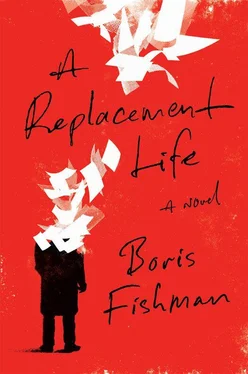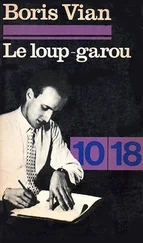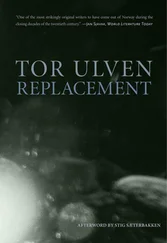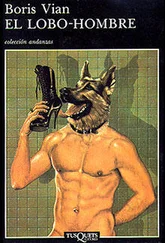“Before the war,” he said, “there was a boy named Pavlik Morozov. He really took Communism to heart. His father was forging some kind of documents. So Pavlik turned in his father. Can you imagine? Guess what happened next.”
She shook her head wearily. “I have no idea, Slava.”
“They murdered the kid. The family murdered him.”
“Why are you telling me this?” She poured herself another glass, shorter this time.
“Because I can imagine myself as the person who’s forging. But I can also imagine myself as the person who turns in the forger. How can that be?”
“I don’t know, Slava,” she said. “I don’t know what you’re talking about, and I’m not interested in finding out right now. Can we go to bed?”
“Her name was Vera,” he said. “The one drinking vodka tonight.”
Arianna considered him helplessly. She sank into one of the kitchen chairs, too tired to wedge her legs under the table. She covered her face with her hands and moaned. Then she opened slits between her fingers. “I wondered was it something like that,” she said. She laughed nastily. “And then I thought, no. What a cliché.”
“Nothing happened,” he said. “That’s the truth.”
“Oh, yeah?” she said, still wearing a foul expression.
“It’s not where I was all those nights.”
“Oh, yeah?” she said again. “So where were you?”
He answered her truthfully. He told her everything. From his mother’s call, and the funeral, and the funeral dinner, and what Grandfather asked, and Beau, and Vera, and Otto, and the rest, the words tumbling out without any through line. At this late moment, he couldn’t tell a good story.
She lost herself in his narrative all the same because, frankly, it was unbelievable. She forgot to remove her fingers from her face, and she sat listening this way, latticed against him. When he finished, she said, “I am actually wishing it was only that you were fucking somebody else.” Her fingers finally moved away from her face and she dislodged a hysterical laugh. “He works on the sly, this one!” She went to drink again, but her glass was empty. “I’m too tired for this,” she said, and covered her face again.
When she opened her eyes, he was on the kitchen floor, next to her legs. “I’m sorry,” he said.
“What are you apologizing to me for,” she said in a desultory way.
“To you, to you,” he said. He tried to slide into her embrace.
“Don’t,” she said, lifting her elbows away from him. He withdrew but remained sitting on the floor like a drunk. They sat without speaking, the clock ticking at them from the wall. “I am counting how many times you had to lie in the last month,” she said at last. “You might be better than anyone I’ve met. And I’ve met some talented liars.”
“I didn’t lie about this.” He gestured from her to himself.
“Somehow, I know that’s true. Remarkable. They do studies about people who won’t face the facts.”
He pulled himself up and rested his palms against the table. He waited until she was looking at him. “You are unlike anyone I’ve met,” he said. “I know you feel the same way. But often we are not happy with each other. And not because of what I just told you.” As he said it, he knew it was persuasive because it wasn’t servile. It was also the truth.
She didn’t respond.
“I would like to try,” he said. “I would like to be the kind of person who loves someone like you.”
“Just be the person who loves me,” she said. In retrospect, it would occur to him, she was merely correcting him. At the moment, however, her words sounded like reluctant forgiveness.
He lowered himself to the floor again. This time she let him rest his head on her thigh.
“What am I going to do with you,” she said, her fingers in his hair.
“I have to tell the truth,” he said, looking up at her.
She took his face in her hands. “You have to tell the truth,” she said.
WEDNESDAY, AUGUST 30, 2006
Two days before the closing of the inaugural fall issue, Junior Staff crackled with pre-holiday anticipation, much as the Gelmans had washed windows and waxed floors on New Year’s Eve in Minsk. The issue would include the Italian story that Arianna was checking; a roundup of back-to-school items; a piece on fall styles; Peter’s piece about the press conference; a baseball piece by the dignified, sweatered man who had been doing Century ’s baseball pieces for most of the century; and comments by Beau on the arrival of autumn.
A specially commissioned painting would appear on the cover: a pointy-nosed, ponytailed lady defying metaphysics by holding in hand the issue in question, the leaves changing outside her auto, the road ahead stretching unsubtly. The work was by Serge, one of several monomial artists used by the magazine. Serge was unable to paint unless entirely in the nude, an awkward discovery made by the magazine the previous year during a reader- appreciation watch-the-artists-paint-reproductions-of-famous-covers event.
Having dropped off the week’s “The Hoot” (66.67 percent factual) on Paul Shank’s desk, Slava felt a twitchy, unfamiliar lightness. The final claim letters had been sealed and sent off that morning from different post offices by special emissaries (Berta, who regarded the matter with more gravity than all the Jews added together, coordinated the couriers). Slava felt as if he were sending soldiers into slaughter; he had told only Arianna about Otto — though who knew whom Vera had told by now, whether out of revenge or concern. He lifted himself above the divider and watched Arianna until she noticed him.
“Get out before they find you new work,” she said.
He nodded.
“You’ll go soon, won’t you?” She meant Otto.
He promised. He reached far over the divider and ran his knuckle down her temple. She stiffened, but then eased into his hand.
Manhattan is the imperial seat from which the various subway lines sail toward Brooklyn like an armada. The Soviet armada is the color of yolk: The D, N, R, F, B, Q, heading to Bensonhurst, Bath Beach, Midwood, Gerritsen Beach, Mill Basin. The rest — the red 2, the green 5, the blues flirting with Queens, the browns making their excretive way across Williamsburg and Bushwick — are the trains of other countries.
The last days of August: the Sunday of summer. The Labor Day weekend was the only thing dividing the people from the full enfilade of fall sales, styles, and shopping. For the last handful of days, the mouth of American commerce — subway platforms, the flanks of buses, bus shelters, the radio — still whispered sweetly about barbecues, swimming pools, weekend getaways, and last chances.
Israel’s door was locked. No one answered the doorbell or Slava’s knocking. He thought about leaving a note, but then the gate creaked open at street level to reveal an old woman in a housedress. Slava called up to her in Russian and asked about her downstairs neighbor. Her ice-blue eyes radiated blank amusement.
“Abramson?” Slava tried. “Lives in the basement apartment. Short. Big eyebrows.” He wiggled his.
“When I moved into this neighborhood fifty years ago,” the woman said in blocky English, “there were a lot of immigrants here. Poles, like me. Germans, Irish, Italian, Hungarian, Croat, you name it. It never occurred to us that we should just speak our own language to the next person in the street.”
Slava blanched. He was about to repeat himself in English when she waved her hand.
“Mr. Abramowitz is in the hospital,” she said. “They picked him up over the weekend. I don’t know how serious it is, but I had to call the family.”
Читать дальше











